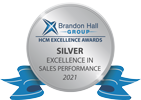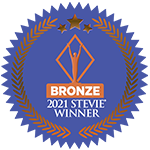5 Tips to Assess Your Sales Organization’s Prospecting Culture

During a recent study we conducted with Selling Power, we found a curious disparity in how sales leaders and sales reps feel about prospecting. Sales leaders think reps feel reluctance, anxiety, and fear when it comes to prospecting, but, surprisingly, reps say they feel optimism, excitement, and anxiety. Obviously, this disconnect can have unintended consequences on prospecting, which could result in an unhealthy pipeline and a quota unachieved. The same study also found that 18 percent of sales reps at underperforming companies say their organizations lack specific goals or metrics for how much time reps should prospect, while 32 percent—nearly one third—of sales leaders don’t know how much time reps spend prospecting. This brings me to today’s blog, in which I want to talk about the necessity of assessing and evaluating an efficient prospecting culture and share five tips of which you should be mindful:
A significant part of a successful prospecting culture is one that ensures prospecting for new business is an integral task. This cannot be something sales reps leave as an afterthought. Instead, sales leaders should ensure prospecting activities are performed to consistent expectations at a regular and specific schedule.
Depending on their role, sales reps should also regularly prospect within existing accounts they own. Circumstances change. Successful sales reps should not rely on their clients to bring changes within their organizations to the sales rep’s attention. Instead, make prospecting within existing accounts part of your organization’s prospecting culture to better serve a client’s needs as well as find new opportunities.
In order to realize successful and consistent results from organization-wide prospecting efforts, sales reps need to understand the expectations their company has for their performance. This means clearly defined processes and strategies to meet specific targets. As these change, sales leaders should ensure buy-in by allowing reps to have a say in the expectations of management.
To be sure sales reps are practicing effective habits, sales leaders need to provide the training and coaching needed to enhance their team’s prospecting skills. Sales training will equip reps with the skills and behaviors required to effectively prospect, whereas regular coaching will help reinforce skills and lead to a strong prospecting culture.
Once your sales team knows their expectations and the company’s objectives, it is vital your organization has a compensation plan aligned with those objectives. Rather than focusing exclusively on sales volume, be sure your compensation package rewards the behaviors that foster the prospecting culture to maintain a healthy pipeline and boost revenue.
One of the most important findings from Janek’s survey with Selling Power is how top-performing sales organizations have a clearly defined prospecting culture. In order to consistently meet and exceed quota, it’s important that sales reps feel their organizations encourage, support, and reward their efforts, and a big part of achieving on the back end of the sales process starts with doing more on the front end by ensuring your sales team has a prospecting culture that is geared for success.

- Account Planning (16)
- Awards (42)
- Client Testimonial (37)
- Personal Branding (21)
- Podcast (12)
- Research (77)
- Sales Career Development (90)
- Sales Coaching (165)
- Sales Consulting (141)
- Sales Culture (181)
- Sales Enablement (380)
- Sales Leadership (112)
- Sales Management (268)
- Sales Negotiation (11)
- Sales Prospecting (136)
- Sales Role-Playing (19)
- Sales Training (242)
- Selling Strategies (279)
- Soft Skills (78)
- Talent Management (101)
- Trusted Advisor (29)
- Virtual Selling (57)
- Webinar (13)




























